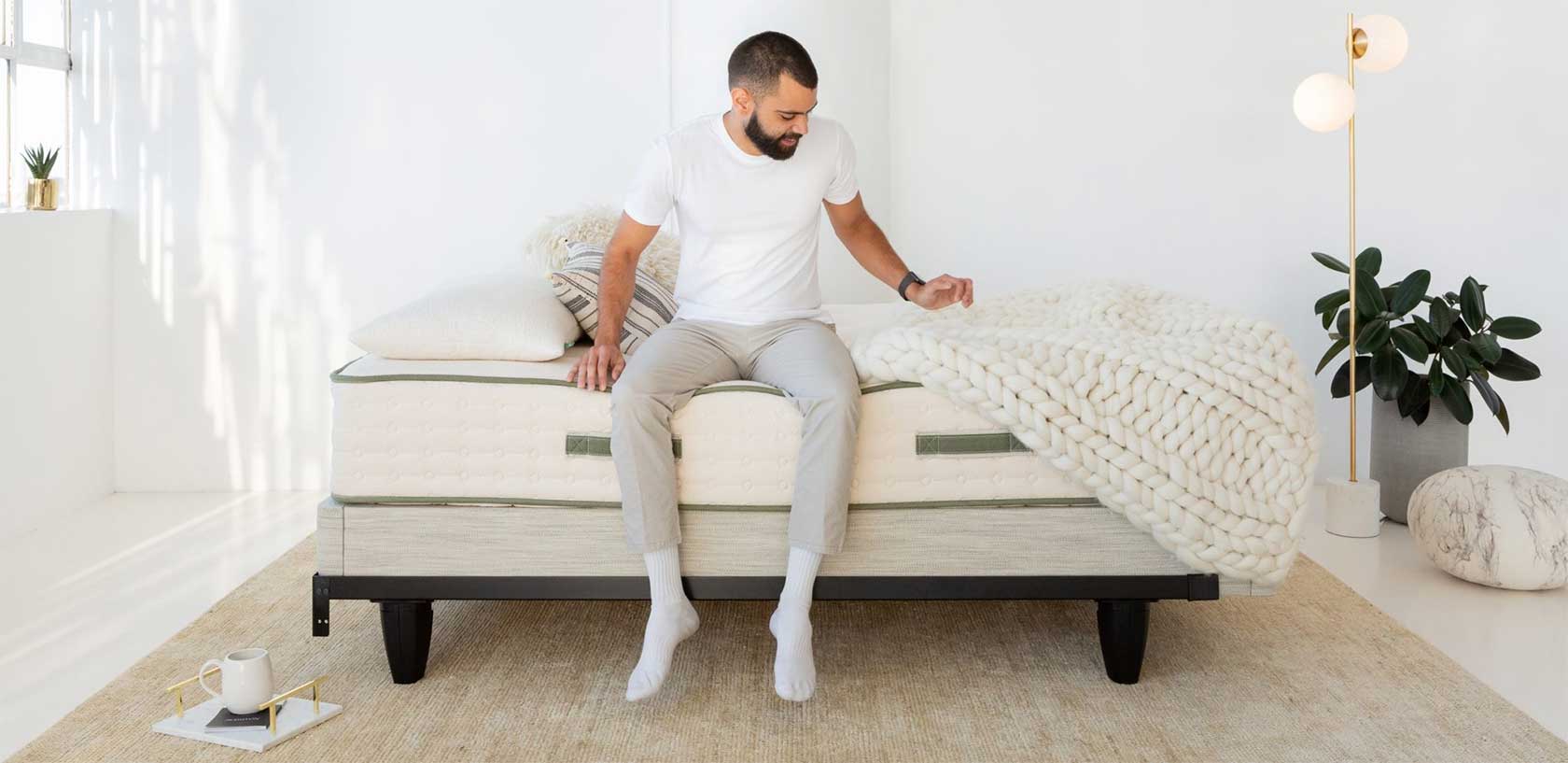
You’re thinking about buying a new mattress. You ask your friends for recommendations, read reviews, and stop by the store to lie down on a few different options. After weeks of research, you purchase what appears to be the perfect mattress — only to start waking up sore and tired.
What went wrong? The whole point of buying a new mattress was to sleep more comfortably and wake up refreshed and ready to tackle the day. After all that research and time, it’s disappointing to discover that your choice wasn’t the best, but you aren’t alone. It’s very common for people to buy a new mattress and realize that it’s not exactly what they hoped for. In many cases, it’s due to a simple factor: They didn’t consider their preferred sleep position when choosing a mattress.
Understanding Mattress Terminology

When shopping for a new mattress, most people focus on the bed’s firmness, or how soft or hard it feels. Although firmness can influence how comfortable the mattress feels, all too often, it’s confused with support. In other words, there’s a misconception that a firmer mattress is a more supportive mattress, while a softer bed won’t provide as much support.
.tdi_67_5fd.td-a-rec{text-align:center}.tdi_67_5fd .td-element-style{z-index:-1}.tdi_67_5fd.td-a-rec-img{text-align:left}.tdi_67_5fd.td-a-rec-img img{margin:0 auto 0 0}@media (max-width:767px){.tdi_67_5fd.td-a-rec-img{text-align:center}}
This is only partially true. A mattress’s firmness can influence how much support it provides, and in turn, whether or not you wake with aches and pains, but that’s only one factor. Your body weight is another (heavier individuals tend to be more comfortable on mattresses toward the firm end of the spectrum in general) and your preferred sleep position. Whether you typically sleep on your side, back, or stomach — or some combination of these positions — makes a significant difference in how comfortable you’ll find any particular mattress.
So what does this mean when you’re shopping for a mattress? In short, whether you’re shopping for organic mattresses, a memory foam model, or a traditional innerspring, you need to consider how you like to sleep before making a decision. It can make the difference between a comfortable bed and a miserable night.
The Best Options for Each Position

Although the only way to know for sure whether a mattress is comfortable is to sleep on it, preferably for several nights, knowing what to look for can help you make the right choice right out of the gate.
Side Sleepers

The majority of people like to sleep on their sides, as it takes the pressure off the shoulders and hips. For people who suffer from heartburn, it’s also the most comfortable for reducing that discomfort.
The most important consideration for side sleepers is choosing a mattress that provides enough support for the shoulders and hips to ensure proper spinal alignment. If either part sinks too low into the mattress, it can cause pressure that leads to pain and discomfort. For most people, this means choosing a mattress that falls on the “medium” part of the firmness spectrum; on a scale of 1-10, these rates between 4-7.
That said, bodyweight is an important factor for side sleepers as well. In general, heavier individuals — those weighing 230 pounds or more — should choose a mattress toward the firmer end, as it will provide enough support to prevent sinking and misalignment. Lighter individuals, those who weigh less than 130 pounds, will likely be more comfortable on a softer mattress that provides more cushioning. Lightweight people won’t sink into a firm mattress as much, increasing pressure on the shoulders and hips.
Back Sleepers

Back and stomach sleepers are tied for the second most common sleep position. Although some people choose to sleep on their backs for cosmetic reasons (not putting your face on a pillow can reduce wrinkles and acne), it’s not the best choice if you suffer from acid reflux or tend to snore. Sleeping on your back can also be uncomfortable for your lower back, especially if your mattress doesn’t provide adequate support around your shoulders and head.
If you sleep on your back, you need a mattress that provides enough support to keep your head and neck aligned, without sinking too deeply. Memory foam and hybrid mattresses are typically a good choice, as they provide support and cradling comfort. Medium to medium-firm options is best, with heavier sleepers best suited by mattresses on the firmer side. However, all back sleepers should avoid extra firm mattresses, as they won’t have enough cushioning for comfort.
Stomach Sleepers

Sleeping on your stomach isn’t ideal, as it puts more pressure on your lower back and spine. Still, if this is your preferred position, you need a mattress that provides extra support in the midsection to keep your hips supported and your body in alignment. Although a super soft plush mattress might be comfortable, it isn’t going to provide adequate support, and in time you’ll experience pain. Choosing the right pillow is just as important for stomach sleepers: Avoid thick, lofty pillows in favor of a thinner (or no) pillow to prevent forcing your neck into an awkward angle.
If you’re one of the many people who change position throughout the night, base your purchase decision on your dominant position. When you do, you can rest easy knowing you made a smart mattress purchase.

